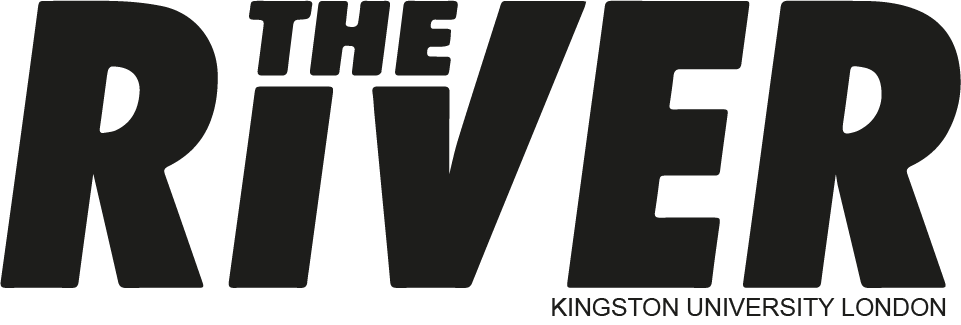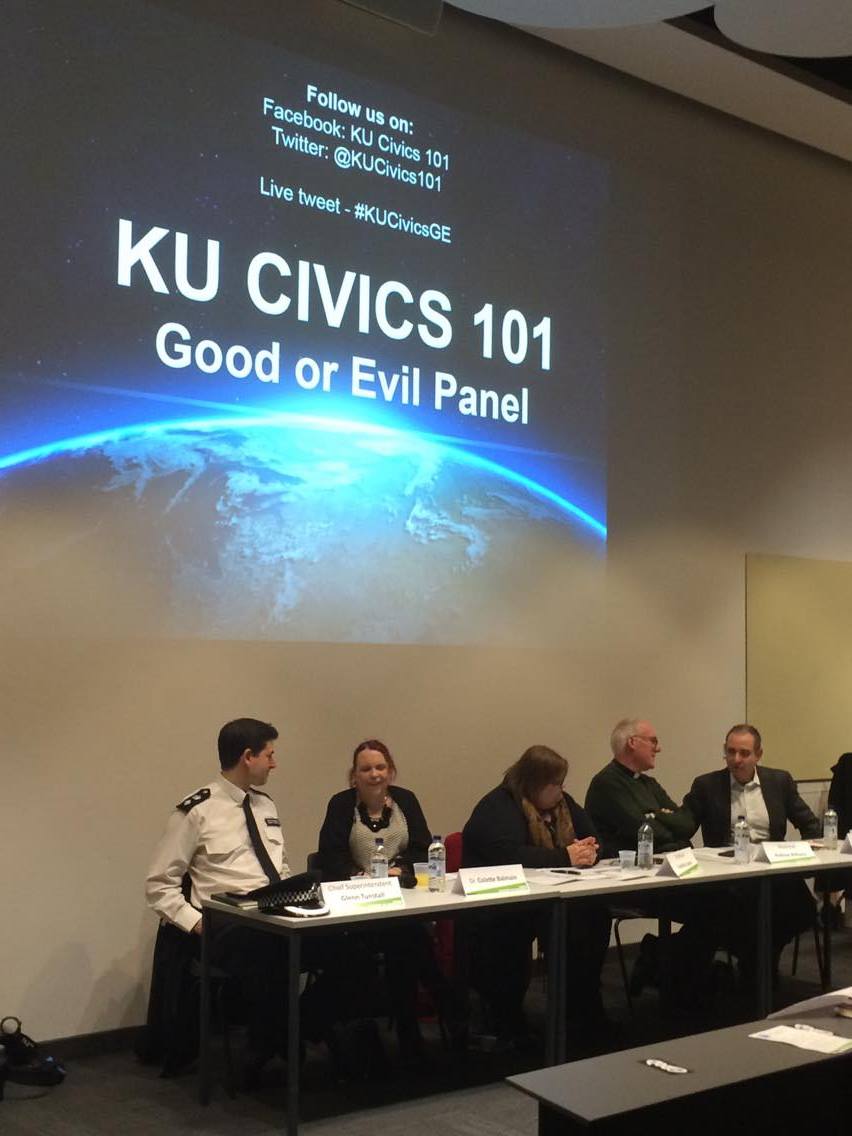A panel of academics, a senior police officer and a reverend debated the topics of good and evil in a panel at Kingston University tonight, with freedom of speech central to the discussion.
Chaired by Professor Evanthia Lyons, head of school of psychology and professor in political psychology, the panel comprised of Chief Superintendent Glenn Tunstall of Kingston Police, Dr Colette Balmain, senior lecturer in film, TV and media, Reverend Andrew Williams, the university’s faith advisor, and Vice Chancellor Julius Weinberg.
The panellists’ reluctance to label both people and acts as evil received some disdain from the floor, with one audience member labelling the panel as “squishy relativists”, claiming that the panel was “shying away” from using the word.
The audience member voiced her concerns that using terms such as good and evil and bad and wrong were more useful than not, and that using acceptable and unacceptable instead were ‘too weak’ to describe some of the awful things that people do.
Williams retorted that “evil is a difficult word to use, even about acts. I think we should talk about good or bad acts. Distinguishing between that and the people who commit those acts is problematic when we start using labels.”
The definition of evil, and evil acts, was much discussed, with little conclusion reached after an hour and a half, despite some attempts to the contrary, with Williams stating that evil was simply an “absence of good”.
Balmain, referring to the 7/7 bombers, said: “When people do evil things, we often say it’s evil ideology. If we say it’s the ideology that is evil, we don’t need to know what that ideology is, and we don’t contend it – it stops a debate, it shuts everything down. We have to contend with it.”
Weinberg reinforced this point, referring back to his well-documented thoughts on freedom of expression within the university, and it being a place to challenge ideas.
He stated that we are living in a time where there is more free speech than ever before, and that we are now more able than ever to criticise those in power.
“What we’re about as a university is avoiding cosy, easy thinking,” he said. “Universities are places where ideas should come together, and, out of argument and discussion, become nearer to some sort of truth.
“Labels like evil actually avoid that. It makes things a bit easy to call things evil, it’s a ‘victim word’.”
Domestic violence was often used as anecdotal evidence by Tunstall, who stated that “my job is to tackle evil and protect the good,” and said that this was the most common place to see good and evil, with perpetrators of these crimes often struggling to see their actions as evil.
A definition of good was somewhat easier to reach, with Williams believing “goodness is a more straightforward idea to grasp, in that, as someone from a background of faith, its acts and dispositions in the human heart that lead to love, or are driven by love.”
The event was organised by student community engagement advisor Aranee Manoharan, alongside members of the KU Civics 101 group, as part of efforts to raise awareness about civic responsibility within the university.

